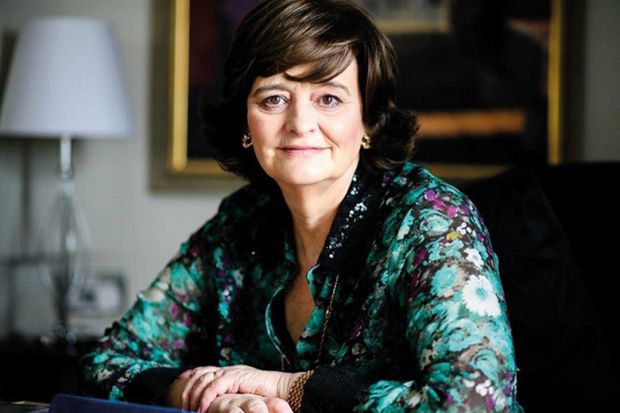Perspectives | Mar 13, 2019
Cherie Blair: “My mother’s struggle taught me the value of women’s financial independence”

Cherie Blair, the founder of the Cherie Blair Foundation for Women , shares her thoughts on the importance of standing for the freedom to earn and learn in your own way.
When I was eight my father walked out on our family and my mother was left destitute with two children to support. This was in the days before welfare was available so, having been forced to leave school at 14 with no qualifications, she had no option but to take whatever job she could.
She became determined that my sister and I would have a different life and, over time, through her encouragement and hard work we were able to make the most of our education and build good careers for ourselves. But my mother’s experience taught me that for women to have greater control over their own lives and the lives of their children, they need financial independence.
This was one of the drivers that led me to set up the Cherie Blair Foundation for Women . I could see the power that financial freedom gives.
There has been much to be hopeful about in recent years. Equal pay for equal work is a legal requirement and more companies are offering better parental leave. These kinds of policies are there to level the playing field for men and women; they also help to make clear that raising a family is the job of both parents.
However, globally, women in the workforce are concentrated in lower-paid, lower-skilled work with less job security than their male counterparts and are dramatically under-represented in decision-making roles.
We have to keep asking ourselves why. Over the past decade a significant body of evidence has shed light on the many barriers that still stand in the way for women, and the stunting effect this is having on the global economy. Advancing the role women play in the labour market could increase global annual GDP by between $12 trillion and $28 trillion by 2025.
Analysis by Boston Consulting Group shows that if women and men participated equally as entrepreneurs, global GDP could rise by 3 per cent to 6 per cent, boosting the global economy by up to $5 trillion. Women represent half of the global population, yet half of their productive potential is lost. This is a travesty — not just for women, for everyone.
A lack of education, opportunity, confidence and support means that we are losing too much and stymying too many. It is time for things to change. In a survey conducted by Avon in 14 markets only half of women said they believed that they live in a culture that encourages female entrepreneurship.
Almost the same number again believe that women are less likely than men to set up their own business because they are too busy looking after families and the home — put simply, men have more time. That is why supporting entrepreneurship is necessary around the world — it equips women with the tools and support to earn their own income in their own way and on their own terms.
Since 2008 my foundation has helped more than 140,000 women to build thriving businesses in 105 low and middle-income countries. One of the critical barriers we see is women’s lack of confidence in themselves, compounded by resistance from family and community members.
We work closely with partners from all sectors to develop projects that will help to release the potential of women entrepreneurs so that they can redefine the future.
That is why I am proud that my foundation is partnering with Avon on stand4her — a global plan to improve the lives of millions of women. As a global beauty company with a network of millions of direct-selling representatives, Avon understands the power that self-confidence and an independent income can give to women.
By opening up access to vital training and support, stand4her could create and strengthen women entrepreneurs all around the world. As a result, more businesses will flourish. More communities will prosper. Economies will grow. And the world is certain to be a better place for it.